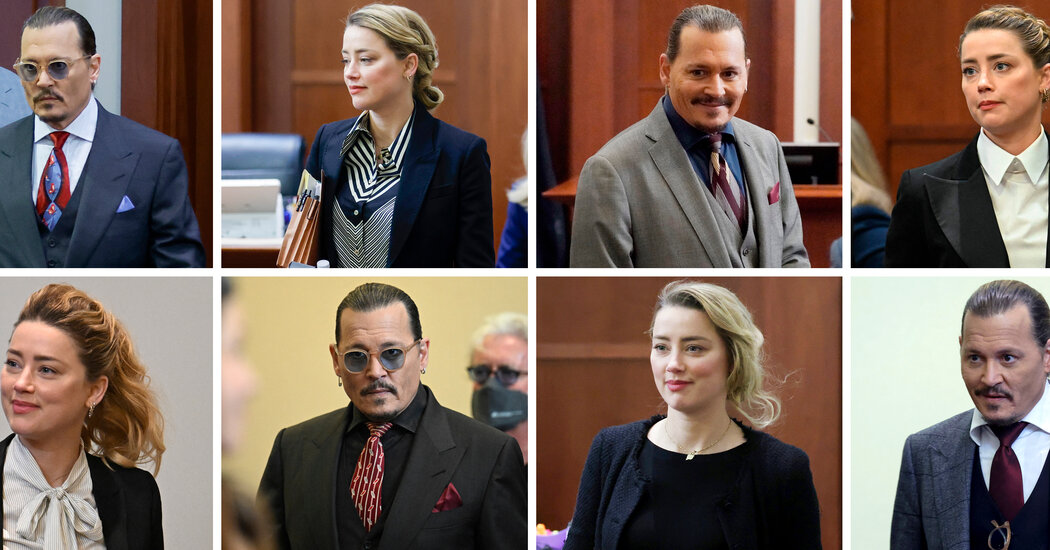
A rager, as the defense suggests, with some uncontrolled “monster” (as the text messages submitted as evidence termed it) within? As if.
In the other corner: Ms. Heard, similarly suited in classic, muted tones of gray and navy. She wears trouser suits or skirts to the mid-calf; blouses buttoned up all the way up, often with ties or pussy bows; belts and pumps. Tasteful, but not telegraphing expense. Her makeup is subtle; her jewelry, small. Her hair is done in a series of complicated 1930s updos, braids and buns, the occasional tendril just escaping its bonds.
Her vibe is not victim or naïve innocent or madonna, often a tactic for female defendants. (See Ms. Sorokin, who sometimes wore white baby-doll dresses at her trial appearances, or Elizabeth Holmes of Theranos, who carried a diaper bag.) Rather, Ms. Heard suggested demure and competent girl Friday, from an era when women had to struggle to be heard — and when they nevertheless came to the aid of the home front and proved their valor.
Unstable, in the words of the prosecution? A fantasist? Clearly not.
To acknowledge the role image-making plays in human prejudice when it comes to justice, right and wrong, is simply to recognize all the ways each side is attempting to make its case — the way the parties are appealing not just to those in the room, those actually deciding the legal outcome, but to the court of public opinion. We the people are also judge and jury when it comes to public redemption stories and career arcs. Both actors’ fans have made their stances clear on social media, though Mr. Depp’s are more abundant and vocal.
There is a reason the Supreme Court wrote, in Estelle v. Williams in 1976, that “the State cannot, consistent with the Fourteenth Amendment, compel an accused to stand trial before a jury while dressed in identifiable prison clothes.” The outfit alone was likely to sway the jury toward an assumption of guilt. (The court then ruled, however, that if the defendant did not object to being so dressed in a “timely” manner, the trial could not later be ruled unconstitutional.)



